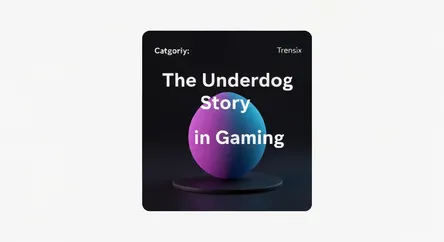Game
The Underdog Story in Gaming

Discover the "underdog" trope in gaming. Learn why everyone loves a surprise victory and how these narratives shape the world of esports and game lore.
What is it?
In gaming and esports, an "underdog" is a competitor—be it a player, team, or in-game character—widely expected to lose. They often lack the resources, reputation, or past performance of their opponents. This narrative trope is a cornerstone of storytelling, pitting the perceived weaker party against a formidable favorite. Whether it's a low-ranked team facing a champion in a tournament or a protagonist starting with nothing in an RPG, the underdog represents the struggle against overwhelming odds, making their journey captivating to follow.
Why is it trending?
The underdog story is perpetually popular because it's incredibly relatable and emotionally resonant. Audiences connect with the struggle, the dedication, and the dream of overcoming adversity. In esports, unexpected "Cinderella runs" by underdog teams generate massive hype and create unforgettable moments that become legendary. These narratives break the monotony of predictable outcomes and inject a powerful dose of human drama into the competition. Developers also leverage this trope in single-player games to create a more rewarding sense of progression and achievement for the player.
How does it affect people?
The underdog narrative has a profound psychological effect on fans and players. It fosters a strong emotional connection, inspiring hope and loyalty. When an underdog triumphs, the victory feels more earned and exhilarating for the audience, creating a shared, euphoric experience. This phenomenon builds passionate fanbases around specific players or teams, driving engagement and viewership. For competitors, being the underdog can be a powerful motivator, removing the pressure of expectation and fueling a desire to prove doubters wrong.